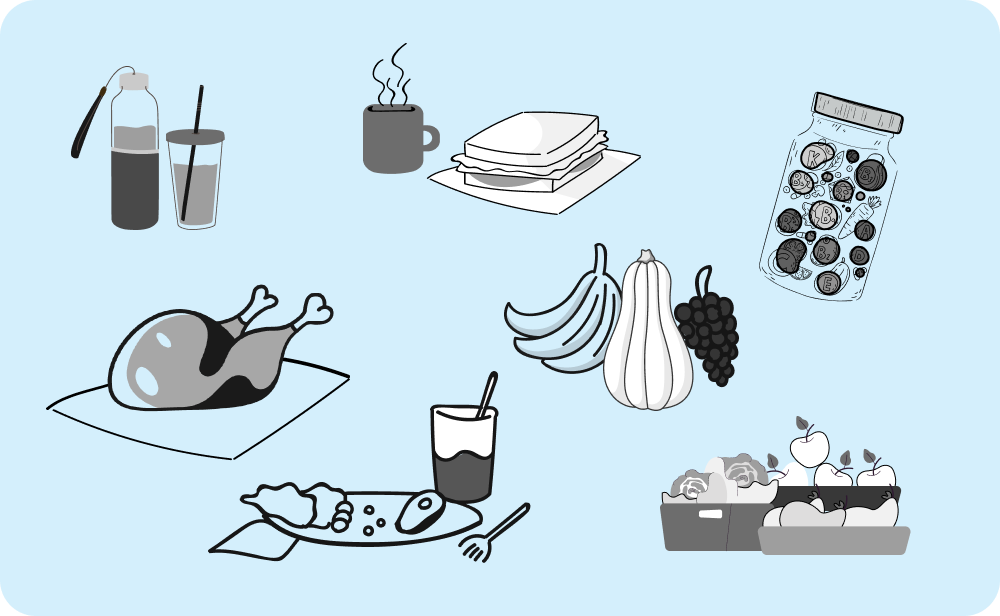Nutrition
Key Points:
- Stay hydrated and try to drink an appropriate amount of water each day.
- Eating a well-balanced diet with fruits and vegetables (check out the Canada Food Guide).
- Eat 3 meals (have protein for breakfast) and have regular snacks during the day.
- Talk to your family doctor about further options to support your recovery.
Nutrition and Hydration
Eating a balanced diet and staying hydrated by drinking plenty of water is especially important while recovering from a concussion. Food and water provide the "fuel" or "energy" needed for recovery and safely returning to the activities you love to do.
The Basics
Generally, we find that people who support their recovery with the following nutritional basics seem to recover with greater ease:

Eat 3 meals a day and a few snacks. Try a small snack before bed that has protein in it.
Eat breakfast every day. If you are not usually a “breakfast” person, try something small to get your day started, such as a smoothie or some nuts.
Include protein with each meal
Whole foods is generally better for you than processed foods
Eat healthy carbohydrates, which helps fuel your brain, and try to limit refined carbohydrates and sugar
Stay hydrated and keep a water bottle near you during school and at home. The actual amount of water you should drink depends on many things, like weather, health, and activity levels, but most require around 2L/day. Dehydration is known to trigger headaches.
Talk to your doctor about your daily vitamin needs, in particular magnesium, iron, vitamin B and D.
Headaches and Nutrition / Hydration
If headaches or migraines are one of your main symptoms, let your doctor know. As well, ask yourself the following common questions.
Dehydration can also trigger headaches in some people. You can learn more about drinking enough water from HealthLinkBC [link].
Having some food in the morning gives you fuel to do the things you need or want to do. Skipping breakfast, or any meals have been known to trigger headaches. Check out the Canada Food Guide [link] for more information.
Foods and drinks that contain a lot of sugar can sometimes trigger headaches. If you find this happens, it may be helpful to reduce this, or make sure you are balancing this with healthier options. Check out the Canada Food Guide for options and recipes [link].
Too much caffeine from coffee, tea, or energy drinks can often trigger headaches. If you feel like you develop a headache after drinking caffeine, try to reduce the amount you drink, or balance this with a more hydrating option, like water.